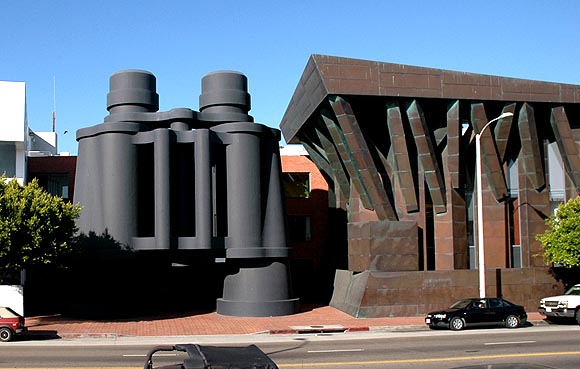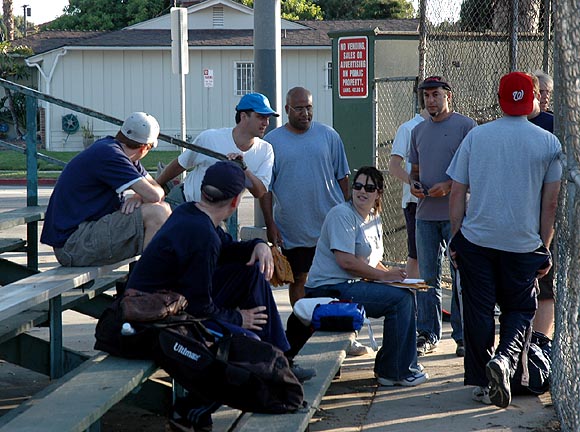In case you missed it, on May 31 in the Boston Globe Ralph Nader argued that the Downing Street memo provides the grounds for the impeachment of the president. That would be Bush. It is time for Congress to investigate the illegal Iraq war as we move toward the third year of the endless quagmire that many security experts believe jeopardizes US safety by recruiting and training more terrorists. A Resolution of Impeachment would be a first step. Based on the mountains of fabrications, deceptions, and lies, it is time to debate the ''I" word.
Didn't Ralph Nader run for president telling everyone there wasn't one bit of difference between Bush and Gore, between the two parties, and only he provided a real alternative? Ah, one supposes he'd be calling for the impeachment of President Gore had things in Ohio worked out differently. But that doesn't seem likely – Gore didn't have the issues with his father that Bush has with his.
In any event, in that last week there has been more and more talk about impeachment. Economist Brad DeLong routinely ends many of his posts with "Impeach Bush. Impeach Cheney." (He worked in the Clinton administration and may have hard feelings.)
But this is, really, idle chatter, or venting.
Tim Grieve over at SALON.COM in the "War Room" section has this comment - ? Whatever the strength of the case for impeaching George W. Bush, it ain't gonna happen. But that doesn't mean that it shouldn't happen, and it doesn't mean that Democrats - or any Americans, for that matter - shouldn't be making the case.
So let's hear it, once again, for [Representative] John Conyers. The gentleman from Michigan isn't calling for Bush's impeachment yet, but he's asking the right questions and vowing to go wherever the answers might lead. Last month, Conyers wrote a
letter to Bush, asking him to answer the charges raised in the not-so-famous Downing Street memo. So far, more than 160,000 Americans have signed on to the letter. And so far, Bush hasn't responded.
? Conyers describes the next steps: "Well, the next thing that needs to be done is that we need to talk with some of the people in London in the Prime Minister?s top echelons of government and others around there in London about this whole subject matter," he says. "We need to not be pulling this off the Internet, reading it from newspaper reports. We need to do some face time with the people that are connected with it or know about it, or can add to our understanding of it. And then also inevitably we?re going to have to have hearings. There will need to be hearings in which this matter is talked about before the Judiciary Committee, and . . . we have witnesses of all persuasions to help shed some light on this. This is a critical part of the democratic process in a constitutional democracy."
As for the press generally ignoring this as not really newsworthy?Conyers says that's not good enough: "You can?t be silent about something that?s from the British intelligence notes," he says. "You can?t say we refuse to talk about it, or it has no credibility, when everybody that was involved in it, from what we can tell, are all perfectly silent and are acquiescing by their silence in the accuracy of what?s being reported."
Between the blogs and his own investigation, Conyers seems confident that the truth - about the memo, about the war and the lies that led up to it - will eventually come out and sink in. "Things are going to turn, and we think that it?s a matter of such seriousness. ? This is not just picking on the President or playing petty partisan politics. This is a matter of profound truth. We?ve lost thousands of lives, and we stand to lose many more yet in a war that the President refuses to tell the Congress what his plans are for getting out of Iraq. He wouldn?t tell us he was going into Iraq, and now he won?t tell us how he plans to get out of Iraq. Something?s wrong here, and we?re going to get to the bottom of it no matter how much of our time and energy it takes."
You have to admire his high-mindedness. And something may be really wrong here ? Big Time, as Dick Cheney would say. But Conyers may be living on another planet.
What if the press is absolutely correct in generally ignoring this issue up until this week? On this planet, the one the press covers, the Downing Street memo isn't an issue ? nor is impeachment.
Over at Whiskey Bar Billmon offers this - The truth (which the political establishment and corporate media understand but can't admit, at least not in so many words) is that the overwhelming majority of the American people probably don't give a flying fuck whether the war was started under false pretenses, or in violation of international law - or even that impeachable offenses may have been committed under U.S. law. All they know is that Saddam was a bad guy (right out of central casting, in fact) and that we're always the good guys, which means the United States had every right to invade Iraq and overthrow its government. It's strictly movie logic, and movie morality, but for most Americans that may be enough - at least as long as the movie ends the way such movies are supposed to end, with the triumph of the "good guys."
I know this is going to sound harsh, but my sense is that American popular opinion about the invasion of Iraq is roughly the same as German popular opinion about the invasion of Russia (which was also sold as a cakewalk, all the way up to the battle of Stalingrad) - most people are just sorry it didn't work out.
But, hey, that's the grim pessimist in me talking. Somebody out there must care, or the corporate media wouldn't even be bothering to debate its coverage of the Downing Street Memo. People may not mind that invasion was unnecessary and illegal, but they do mind the mess it has turned into. And that's a start.
That seems about right. And Rick, the News Guy in Atlanta, our frequent contributor, adds this about no one really caring if this war was started under false pretenses, or in violation of international law. ? I think this observation is correct.
Still, the older I get, the more I realize that democracy - still, in my book, the best way to govern a country - doesn't work very well if the people are not urged to favor doing the right thing. So maybe the job of the Democrats should not be to pander to voters by appealing to their most selfish angels, but instead to argue that our country should do the right thing, not only overseas but at home.
Impeachable offenses?
For the life of me, I can't find any. Not that I like him or what he's done - and this is assuming we're talking about George W. Bush here - what has he done that's vaguely impeachable?
Billmon says ? "People may not mind that invasion was unnecessary and illegal, but they do mind the mess it has turned into. And that's a start."
True, but in my opinion, maybe a start off in the wrong direction, assuming the caprice of the American voter may soon be to just pack up and get out.
Unlike in the case of the Vietnam War - in which I found myself mocking all those who argued that maybe we shouldn't have gotten in there in the first place, but should "now stay there and win it" - I do not think we should have gone into Iraq in the way we did, but since we invaded and took away their government (bad as that government may have been), we now have a responsibility to stay long enough to help the Iraqis set up a new one.
If, on the other hand, Bush had taken us in there to kick out one group of shitheads, and then pulled out without regard to what new gang of shitheads would take the place over, I think he would deserve to be doubly damned.
Billmon also says ? "It's strictly movie logic, and movie morality, but for most Americans that may be enough - at least as long as the movie ends the way such movies are supposed to end, with the triumph of the 'good guys.'"
One more observation, and then I promise to shut up for a while about "irony," which I tend to see everywhere: Why do all these conservatives who despise Hollywood for being so liberal seem to see all their adventures in such cinematic terms?
I guess it's true, that if you hate something enough, you become it - which is as good an explanation as any for all those old Trotskyites of yesteryear becoming the neoconservatives of today.
That's an interesting argument that Rick opens with. The US should do the right thing, not just do whatever and then attempt to cover up the whatever with bumbling attempts at public relations, and when that doesn't work, attacks on the press for being unpatriotic.
As for impeachment, our friend Dick up in Rochester (too near Canada?) points out this ? Something that came out in Clinton's circus was the really basic concept that an "impeachable offense" is pretty much what Congress says it is. Could be farting. Could be lying to the country. Could be not doing something.
Some of do remember that long discussion of just what are "high crimes and misdemeanors." I believe it all came down to the Republicans arguing Clinton lied under oath, with the intent to deceive. Didn't matter what he really did ? he lied on purpose under oath.
As for the impeachment proceedings against Nixon, things were clearer then. From our Wall Street Attorney, who studied constitutional law under Peter Rodino, who chaired the House committee charged with the impeachment proceedings back them - The common theme in the two impeachments of the twentieth century is that both were based upon the invocation of executive privilege without merit.
Executive privilege can only be used in matters of national security. I believe that the USSC case on point is United States v Richard M. Nixon. (The exact citation unavailable on the commute back to New Jersey.)
Nixon invoked executive privilege claiming that to turn over the recordings made in his office to Rodino and his committee would somehow compromise national security. Clinton mistakenly invoked executive privilege based on the belief that his personal life was a matter of national security.
The difference between these two scenarios is that in the first instance Nixon had indeed, in authorizing and thus participating in several criminal acts including the break-in at the Watergate, engaged in high crimes and misdemeanors. Thus the use of executive privilege was used to cover-up certain high crimes and misdemeanors.
In Clinton's case, no law was broken until he used executive privilege and lied under oath to cover-up an affair he had with Monica Lewinsky.
In other words Nixon's use of executive privilege was yet another pattern or practice of criminal behavior - while Clinton had committed no impeachable offense until the cover-up itself.
The above was my basic argument to Rodino while in law school. He said he didn't like it, because he couldn't disagree with it!
Well, Bush may have lied, or not ? and intentionally misled the Congress, and taken the country into war on false pretenses ? or not. But he wasn't under oath, testifying to a court. That's the "get out of jail free" card, isn't it? It may have been his best judgment that the war was a fine idea ? and you don't consider a judgment call a crime. It's just a decision. There are no underlying crimes, as there were with Nixon.
And late in 1999 almost half the voters, and a bit more that half of the Supreme Court, decided Bush's judgment was what we would rely on in this sorry world. A mistake to give him that power? Maybe so, and maybe not. We have elections every four years.
As for what constitutional scholars have to say, one could glance through this -
The I-word
Ralph Nader says the Downing Street memo is grounds to debate the impeachment of the president. Four constitutional scholars weigh the issue.
Mark Tushnet, Jack Rakove, Michael J. Gerhardt and Cass Sunstein ? SALON.COM - June 9, 2005
Some excerpts ?
Mark Tushnet, Carmack Waterhouse Professor of Constitutional Law, Georgetown University Law Center? I know something about the Constitution, not much about intelligence operations. So, I don't want to engage the factual claims about the meaning of the Downing Street memo. Let's assume that the memo accurately reports the facts and that a reasonable person could conclude that Bush administration officials lied so that they could lead the nation into a war with Iraq. Would those facts justify impeaching them?
On its face, that question is laughable - because the answer is so obviously yes. If we could ask any of the leaders of the movement to get the Constitution adopted, "Could a president be impeached for lying to the American people in order to get their support for a foreign war?" he would say, "Of course. That's exactly what the impeachment provision is all about."
Impeachment was designed as a mechanism for removing from office a person who had demonstrated the kind of political irresponsibility that seriously threatened the nation's political institutions --and whose continuation in office was so dangerous that waiting until the next election couldn't be tolerated. Why would anyone think that the kinds of misrepresentations Nader and DeLong believe the administration made shouldn't trigger the impeachment provision?
Mostly because we've been misled by our contemporary understanding of the words the Constitution uses to describe the preconditions for impeachment, having forgotten what those words meant when the Constitution was adopted. The Constitution says that the president and other civil officers, like the vice president and secretary of defense, can be impeached for treason, bribery or "other high crimes and misdemeanors."
Tushnet goes on to explain that today we think that these provisions refer only to criminal behavior. Wrong.
As he explains, to the writers of the constitution impeachment provisions referred to behavior that amounted to extraordinarily serious political misconduct - selling out the country to a foreign nation (treason), selling out the national interest for private gain (bribery), and similar political misconduct. He says "lying to the American people to gain support for a foreign adventure that they wouldn't otherwise endorse isn't even a close case." No problem. Do it.
But he mentions complications ? "? impeachment should be reserved for situations in which two conditions are met - unfitness as demonstrated by serious political misconduct, and a need to replace the president so urgent that we can't put up with waiting until the next election."
The urgency is the problem. Since the president's party has more than firm control of both the Senate and the House there really is no way to claim urgency. Both houses of congress see no need to replace Bush. Bottom line? "If you want to impeach the president, you're going to have to win elections. And, of course, if you can do that, you might not have to impeach the president anyway."
Jack Rakove, Coe Professor of History and American Studies, Stanford University? Why would anyone even bother to make this argument? One would have to suspend oodles -- nay, caboodles -- of disbelief to imagine a scenario under which impeachment proceedings could even begin, much less make any headway in a Republican House. And even with impeachment, how could a two-thirds vote for conviction in the Senate possibly be mustered (or maybe the word is really "mustarded")?
But let's suspend our disbelief for a moment. Politically unrealistic as Nader has repeatedly demonstrated himself to be, an abstract case could be made for uttering the I-word with the current administration in mind. For one thing, the impeachment of Bill Clinton in 1998 set the bar for "high crimes and misdemeanors" so low that any subsequent president could legitimately worry about this generally moribund provision of our Constitution being deployed against him whenever an opposition party controlling Congress found it convenient to do so.
For another, a decision to initiate a war that depended on the calculated misrepresentation of information on the scale alleged against this administration plausibly falls within the unspecified category of "high crimes and misdemeanors" that the framers of the Constitution belatedly added to their original list, limited to treason and bribery. The fact that this original deception was accompanied by a wholesale failure to plan for the occupation presumably compounds the case for impeachment.
But again, the problem is we elected who we elected.Simply put, Americans know as much now about the defects in the administration's case for war as we did when we voted in November. True, some details have been added here and there. Additional months of insurgency and countless bombings have repeatedly confirmed how poorly our highest leaders planned for the aftermath of an initial battlefield victory. But the nation had as much information last fall as it needed to make an informed judgment about the rationale for war and the conduct of the occupation. And the challenger, John Kerry, certainly did the best he could to place these issues at the heart of his campaign. Even if large numbers of Bush supporters proved incapable of absorbing this information, their votes do not count any the less for having been cast in self-imposed ignorance.
Ah, we bought the product and it's no time now for buyer's remorse.The great irony here is that the election system has generally worked much better than the framers envisioned, usually producing decisive and unchallengeable results. The Y2K election that installed George W. Bush in the presidency is, of course, one of a handful of notable exceptions to this rule. The last election, however, was not. An informed electorate made its choice, and for better or worse, we are stuck with the consequences.
So be it.
Michael J. Gerhardt, Professor of Law and Director of the Center on Legislative Studies, University of North Carolina Law School? Those urging an impeachment inquiry against Bush undoubtedly consider the Downing Street memo akin to the Watergate tapes, which established President Nixon's direct involvement in obstructing justice. But any analogy to Watergate does not hold. Nor does it square with what we know about the impeachment process from the Constitution, its structure, and prior presidential impeachment attempts, including those against Richard M. Nixon and Bill Clinton.
First, impeachment requires proof of treason, bribery "or other high crimes or misdemeanors." "High crimes or misdemeanors" refer to breaches of the public trust and offenses against the state. While there was substantial disagreement about whether Clinton's misconduct formally qualified as an offense for which he could be properly impeached and removed from office, the case for Nixon's impeachment and removal is widely viewed as paradigmatic. His misconduct was bad, so bad that he resigned from office when it became clear that a majority of the House and at least two-thirds of the Senate were prepared, as required by the Constitution, to make it a basis for removing him from office.
? The Downing Street memo tells us nothing we did not know before its publication, and it has hardly mobilized the requisite support in the House for impeaching and in the Senate for convicting the president for misleading the nation into war.
Yet the framers never suggested impeachment and removal were appropriate to address political leaders' mistaken judgments. Indeed, the Senate's acquittal of President Andrew Johnson, by the slimmest of margins, has been understood as signifying the Senate's judgment that a president may not be removed for mistaken policy or constitutional judgments. If presidents could be removed for their mistakes, we would have a very different kind of government than the one we do have.
? The Downing Street memo does not establish Bush's bad faith. He has repeatedly denied misleading the American people. More importantly, the president's reelection was based in part on the American people's rejecting the charge that he had misled the country in the run-up to the Iraq invasion.
? The case for impeaching Bush cannot be made. Manipulating the impeachment process to undo electoral outcomes with which one disagrees is not the American way. The American way is putting your case before the American people as best you can, and accepting the results as graciously as possible.
He didn't act in bad faith. And he may be inarticulate, dim-witted, mean-spirited if not sadistic, and have little if any judgment, but Bush is the man we chose. Or close enough.
Cass Sunstein, Karl N. Llewellyn Distinguished Service Professor of Jurisprudence, Law School and Department of Political Science, University of ChicagoIt is clear that those who impeached Clinton were really motivated by their obsessive disapproval of him and his presidency. At a minimum, they hoped to damage him politically, so as to weaken his presidency and the next Democratic nominee as well. They succeeded beyond their hopes. Without the impeachment, it's a good bet that Vice President Gore would have been elected in 2000.
But Democrats shouldn't return the favor. Let's suppose that Bush did mislead the country. For the last year and more, it has been argued, plausibly, that the White House "hyped" the war effort by exaggerating its information about the actual threat from Saddam Hussein. Of course this is a legitimate and quite serious political complaint. And because the complaint involves official behavior, it is at least in the general domain of the impeachable (as Clinton's misconduct was not). Nonetheless, exaggerating a foreign threat, even intentionally, is hardly a legitimate basis for impeachment.
Little is added by the Downing Street memo.
? Is the president of the United States to be impeachable because Britain's foreign secretary believed, in 2002, that Saddam was less capable of using weapons of mass destruction than Libya, North Korea or Iran? Is the president impeachable because of an interpretation of his motivations by the chief of a British intelligence agency?
? At the very worst, Bush was committed, early on and for multiple reasons, to using force to remove a brutal dictator from office, and he hyped and distorted the evidence to convince the American public of the need for imminent military action. (In my own view, by the way, Bush believed in good faith that Saddam posed a genuine threat to American security, partly because of Saddam's willingness to support terror, partly because of Saddam's own military goals.)
Compare the behavior of President Franklin Delano Roosevelt in World War II, who secretly and unlawfully transferred arms - including more than 20,000 airplanes - to England. Roosevelt deceived both Congress and the American public about what he was doing. It would have been preposterous to claim that Roosevelt thereby committed an impeachable offense.
So too for Bush. In any four-year period, the nation's leader is highly likely to deceive the public on a serious matter at least once --sometimes inadvertently, sometimes for legitimate reasons, sometimes for illegitimate ones. Of course presidents should not exaggerate evidence, and it's perfectly proper to ask whether Bush got us into war under false pretenses. But there isn't anything close to a sufficient basis for impeachment.
It's obvious that the call for impeachment of Bush is impractical; it's simply a nonstarter, a publicity stunt, reality-free television. But it's also an irresponsible and even nutty idea in principle - the lunatic left imitating the lunatic right. Can we talk about something else instead?
Yeah, that really is a good idea.









